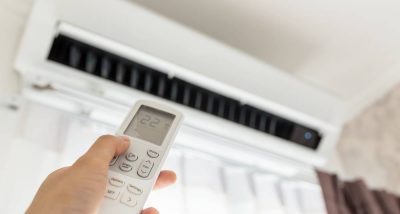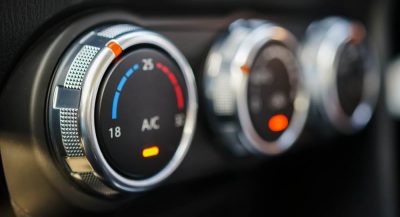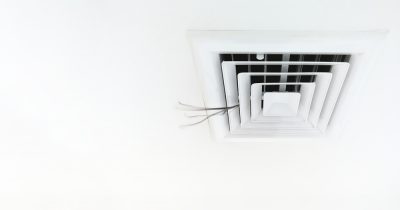- Oneflare /
- Cost Guides /
- Air Conditioning

How much does an Air Conditioner cost?
$500 - $1,500
What's on this page
- How Much Does an Air Conditioner Cost?
- Air Conditioner Installation Cost?
- Air Conditioning Electricity Costs
- Factors Impacting AC Costs
- Price Estimates for Different AC Units
- Price Estimates for Different AC Brands
- Different AC Installation Costs
- Air Conditioning Repair Cost
- How to Hire an Air Conditioning Installer
- How to Save Buying an AC
Read Related Air Conditioning Articles
How Much Does an Air Conditioner Cost?
The average air conditioner cost can range anywhere from $300 for a small window unit, to $5,500 for a whole-house unit. These price estimates do not include ductwork or installation costs and only the unit itself. If you’re looking for a ducted aircon, prices can cost from $10,000 to $30,000.
How Much Does Air Conditioner Installation Cost?
Many factors can influence the cost of air conditioner installation. Depending on the cost of the unit and the type of system, costs range anywhere from $500 to $1,500 for installation.
Air Conditioner Installation Costs Across Australia
Air conditioning installation prices can vary according to location. The main factors that affect the cost are shipping costs and labour costs. In general, labour costs range between $70 to $90 per hour, depending on local rates. Here are some examples of local labour aircon installation price examples.
| State/Territory | Average AC Installation Costs |
| New South Wales | $500 – $1,000 |
| Victoria | $500 – $900 |
| Queensland | $600 – $1,000 |
| Australian Capital Territory | $600 – $1,000 |
| Western Australia | $500 – $900 |
| Northern Territory | $600 – $1,000 |
| Tasmania | $600 – $1,000 |
| South Australia | $600 – $1,000 |
Air Conditioning Electricity Costs
Purchasing the air conditioner and having it installed are only a portion of the costs associated with an air conditioner. The question is, how much electricity does air conditioners use? They also add to the monthly electricity bill as well. Of course, the total cost depends on the weather and how often you decide to operate it.
A ceiling fan can cost as little as $0.01 an hour to run. On average, a reverse cycle air conditioner can run between $0.25 and $0.35 per hour. The total cost depends on the size of the room. An average 36-square metre room would cost about $0.36 to $0.70 per hour, but a 50 square metre room would cost about $0.70 to $0.95 per hour. A whole house ducted system costs about $2.45 to $3.45 per hour. The cost also depends on how cool you keep the thermostat.
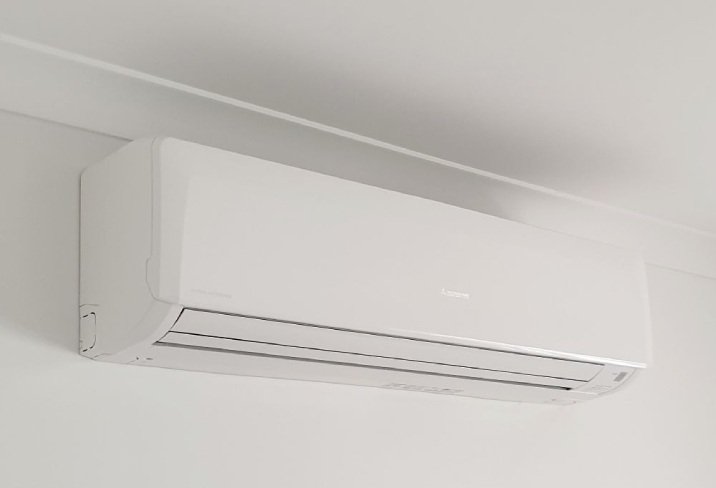
Split air conditioner. | Source: Pacific Air and Electrical
Factors Impacting the Cost of an Air Conditioner
Several factors affect the cost of an air conditioning unit, both in initial costs and in the long-term operating costs.
Brand – Regardless of the type or size of the unit, you will pay more for specific brands like Actron and Daikin. It is important to realize that price is not necessarily a good indicator of quality, and you should do your research before you purchase.
Size and Power – The size of the unit and the power of the aircon will also affect cost. It is vital to get an air conditioner that is the right size for the area that you wish to cool. If necessary, consult a heating and cooling specialist to determine an appropriate size unit for your space.
Unit Type – The type of air conditioning unit will also have an impact on the cost. For instance, a small window unit might only cost a few hundred dollars, whereas a whole-house unit might cost several thousand dollars.
Running Costs – Operating costs are an important consideration when purchasing an air conditioning unit. You should always check the energy rating and get one that a low operating cost over time. Sometimes, spending a little bit more, in the beginning, will save money in the long term.
Installation Costs – Installation costs are dependent on the hourly rates charged locally, and the type of unit influences labour costs. If the aircon requires ductwork and additional wiring, it will cost considerably more than installing a window unit. You also need to consider air conditioning service costs, too.
Price Estimates for Different AC Units
The type of unit can also affect your total cost. Here are the most common types of air conditioning units.
Stand-alone air conditioning unit – A stand-alone aircon is also known as a window unit. These air conditioners are designed for small areas and can usually fit in a window. Remember to make sure that the aircon is sealed correctly.
Split system air conditioning – A split system can alternate between heating and cooling. Split air conditioners are often more expensive initially, but you do not have to have two different units.
Wall-mounted air conditioning unit – A wall unit is similar to a portable or stand-alone unit. These are meant for a small area and can be conveniently mounted on the wall. Wall air conditioners are efficient because cool air tends to sink, which means that it will go where it is needed the most.
Central air conditioning – Central air conditioning involves installing ductwork that will carry the cooled air to where it is needed. A central aircon is similar to a furnace and can include extensive installation expenses.
Portable air conditioner – A portable air conditioning unit typically sits on the floor and provides direct cooling where it is needed. Since portable air conditioners are easy to move around to different areas and are inexpensive, but they might not be enough for some rooms or situations.
Price Estimates for Different AC Brands
The brand can have a significant impact on aircon installation cost. For instance, Mitsubishi air conditioner prices tend to be higher than those for Fujitsu. The following compares the cost for a reverse split cycle air conditioner of the smallest size available by brand.
| Air Conditioner Brand | Average Costs for Smallest Aircon |
| Daikin | $1,900 |
| Mitsubishi | $2,400 |
| Fujitsu Air | $900 |
| Carrier 3 | $2,900 |
| Braemar | $850 |
Different Types of Air Conditioning Installation Costs
Evaporative cooling – This type of unit uses evaporation to cool the air. They are eco-friendly and easy to install. Since it is an eco-friendly solution, you might be wondering how much does evaporative cooling cost to install? Installation can run between $3,000 to $5,000. Evaporative cooling cost is lower over the long term.
Reverse cycle – A reverse cycle air conditioner can switch between heating and cooling, does not require ductwork. Reverse cycle installation costs around $600 to $750 to install.
Central air ducted air conditioning – This ac duct installation cost is the most expensive to install. It can cost between $6,000 – $12,000 to for an expert to install central ducted aircon in your home.
Through the wall air conditioning – These units are the least expensive to install and generally only cost about $150 to $500 to install.
How Much Does Air Conditioning Repair Cost?
Depending on the type of air conditioner unit and property type you have, prices will differ slightly in price.
- Ducted system repairs: $70 – $130
- Gas heating repairs: $95 – $180
- Inverter system repairs: $100 – $190
- Multi-split system repairs: $120 – $220
- Split system repairs: $85 – $160
- VRV system repairs: $140 – $250
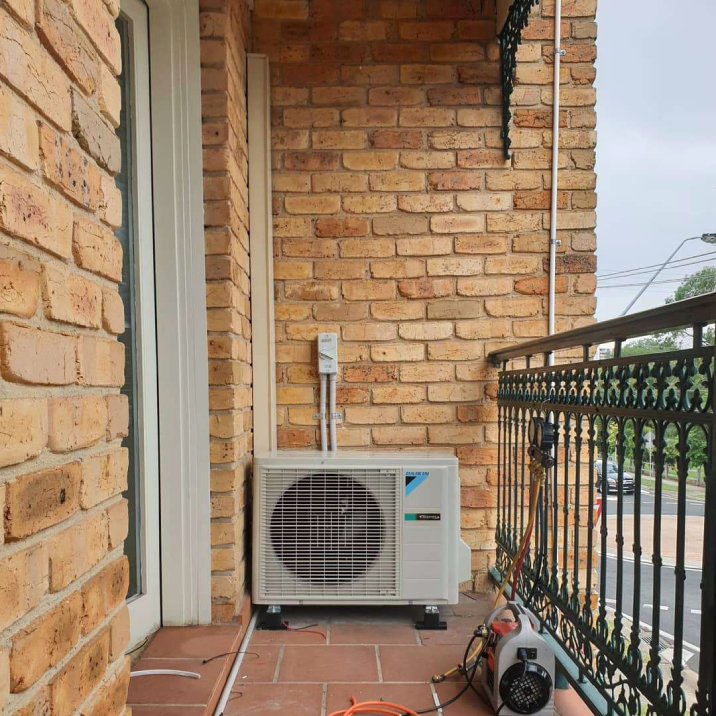
Air conditioner condenser unit on a balcony. | Source: Royal Touch Air Conditioning
What are the important things to check before calling AC repair?
Check If You Have Electrical Power
This may sound strange, but there are owners who call for repair only to find out that the whole neighbourhood has no power. Of course, we know how embarrassing that might be for you.
As a matter of fact, it can even leave a bad taste when service technicians ask for payment only to later realise that the fault was caused due to a power cut.
Is the Circuit Breaker Tripped?
If the neighbourhood has power, it may be possible that the problem has something to do with your circuit breaker. If the breaker has been tripped, just simply reset it. You have to remember that when a breaker trips, it is to prevent unwanted accidents.
There must be some problem with the wires supplying more power than what it can accommodate. It is better to ask for an electrician to assist you if the breaker trips again.
Check Your Thermostat
Adjust the thermostat temperature by setting it five degrees below the reading and wait for the system to start. However, other problems might be due to the batteries. If you weren’t aware, batteries in your digital thermostat need to be changed regularly.
Dying or dead batteries is one of the causes of your unit having problems or not functioning at all. There’s a high chance that your thermostat batteries are the problem when the display does not light up.
Turn on the Furnace
Before you get your air conditioning unit repaired by a professional, you first need to make sure that your heating has a power supply. That is why you should check the plugs or fuses that may service your system.
Condenser is Restricted
You might not have considered this but try looking at your outdoor unit. There might be something stacked against it that is blocking the airflow, which impairs the efficiency of your air conditioning unit. Remove any weeds, leaves, twigs, or any debris that might block the air.
If the outdoor unit is placed in a grassy area, you might want to do some weekly trimming to prevent anything from getting in the way of the unit.
Condensate Drain Problems
If you see that nothing is wrong with the thermostat and your house has electricity, check the indoor air handler for pooling water. Condensation from the evaporator coil drips into the condensate pan and conveys through a drain tube.
When the tube is clogged and the pan is filled with water, it activates a float switch that will shut down your air conditioner as a safety-feature. This prevents the water from overflowing into the condensate pan.
If you see water in the pan, that is a good sign that your drain is clogged. Empty the pan under the unit and channel out the water from the drain line. Also, the pan has a built-in safety switch and you need to make sure that it is always turned on.
This switch is located under the air conditioning unit. This is something worth noting because people sometimes bump into the unit or the pan itself and accidentally turn off the switch. Ignoring the safety switch will lead to a water mess at home.
Is the Air Filter Clean?
A dirty air filter can cause many issues for your unit by damaging the blower motor, increasing the cooling costs by 15 per cent and damaging your air conditioner too early. As a matter of fact, many air conditioning repair calls are due to the clogging of the air filter.
If your air conditioner starts turning on and off repeatedly and rapidly, it is a symptom of a dirty air filter. It is advisable that you change your air filter once a month. The replacement is affordable, usually around a few dollars.
Noisy Air Ducts
Clattering noises accompanied by uneven temperatures from room to room, or no airflow at all in one or more vents may mean that you have a dirty, loose, or disconnected air ducts.
The air ducts channel the cooled air throughout your living space and they are important for cooling efficiency and home comfort, although these air ducts are not really part of the unit. Make sure that the ducts are free or check the connection.
Check the Indoor Unit Switch
Some air conditioners have an on-off switch next to the indoor air handler for safety purposes. Most of the time, occupants of the house will accidentally switch off the indoor handler while passing by the area, or some children’s toys will hit the switch, which turns the unit off.
Check the Outdoor Unit
Just like the indoor unit, a disconnect switch is installed with the outdoor unit for safety reasons, so be sure that the switch is plugged or flipped on. However, be very careful, as this switch controls about 240 volts.
If the disconnect switch is plugged, it may be possible that some dirt is preventing the grille’s airflow. It could also mean that the condenser coil is dirty and there is something that prevents the heat-energy release, which reduces the cool air.
Doing the tasks above can help you not only prevent unnecessary calls, but it can also help you save time, money and your air conditioning unit. Air conditioners are composed of refrigeration, mechanical and plumbing components that are correlated with each other.
If one part is affected, the performance of the whole unit will be compromised as well. We highly recommend that you do these troubleshooting tips first before scheduling an appointment with a professional air conditioning repair service.
How to Hire an Air Conditioning Installer
It is crucial to hire an installer who can do the job right and at an affordable price. The contractor with the lowest bid might not always be the best person to do the job. If you have to hire someone to come back and fix mistakes, it can cost more than hiring the right person the first time. Here are a few tips to help you find the right professional.
Make sure they have the proper licenses and certifications. If there will be work such as electrical, roofing repair, or other factors included in the job, make sure the contractor has access to qualified people.
Ask for reviews from customers and get references, if possible. Be aware that reviews on the company website are chosen to show the contractor in the best light. Go to sites were consumers can post their reviews, good or bad.
Get several different quotes. You could expect all of the estimates to be within a specific range. Be wary of the exceptionally low bid as this might indicate problems with the work, or they might not include everything needed in the price.
Tips on Creating an Accurate Estimate
Before the contractor begins work, you want to make sure that you get an accurate estimate. There are several things that you can do to help the contractor provide the most precise estimate possible.
- Know what type of unit you need and what you expect from it.
- Know the size of the area that you want to cool.
- Inform your installer if there are any existing ductwork or electrical issues.
- Tell the contractor about any access issues, such as a tight attic or crawlspaces.
Tips on How to Save Money When Buying an Air Conditioner
Type of air conditioner – There is no need to go overboard when buying an air conditioner. If you are only cooling a small area, a window unit might be all that is needed.
Shop around – It is always wise to shop around and do your research. Different brands and types have various quality factors. Know what is available before you commit to a purchase.
Buy quality – Buying a good quality unit from the beginning can help save on repair costs later.
* The cost data is based on Oneflare and third-party sources
FAQs
How do you use a Mistral portable air conditioner?
How do I reset my Brivis heating system?
How long do evaporative air conditioners last?
What is insulation in air conditioning?
Real Oneflare Customer Quotes
Ana's Aircon Job
Job type
Air conditioner installation
AC type
Split system
Location
Ground floor of meeting room
$700inc. gst
Quoted by Abc Air
Jade's Aircon Job
Job type
Aircon and heating installation
Size of house
4-bedroom home
Condition of home
Brand new build
$8000inc. gst
Damian's Job Type
Job type
Aircon installation
Type of AC
3 split systems
Brand preference
Mitsubishi 2.5kW or Fujitsu 2.5kW
$4200inc. gst
Quoted by Electrotech Cabling Solutions
